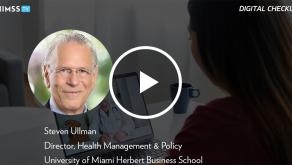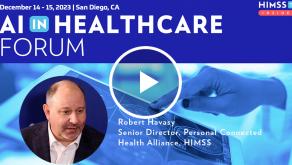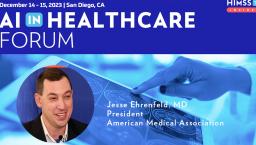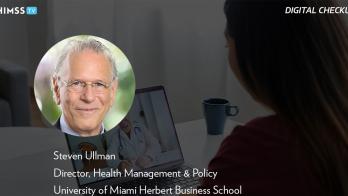A comprehensive guide to telehealth vendors
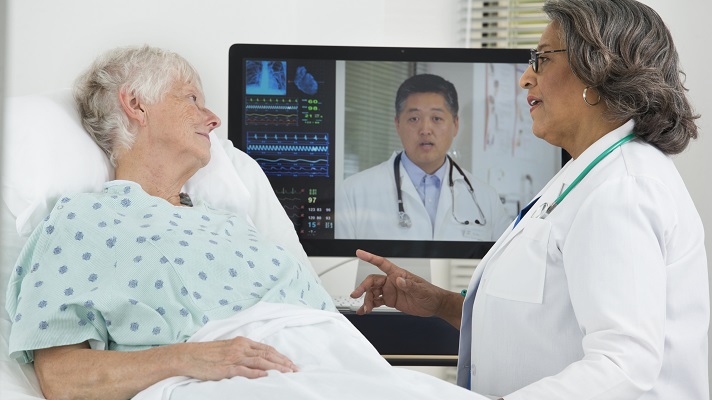
Telehealth always has been a key pillar of technology-enabled care delivery that helps hospitals, health systems and group practices deliver quality care at a distance – and often also gain efficiencies, improve patient and provider satisfaction and save costs.
But as 2020 unfolds, with the COVID-19 pandemic severely testing health-system capacity, telehealth is stepping up. Virtual care and remote monitoring have never before been in the spotlight as they are today.
As federal officials remove many of the regulatory and reimbursement barriers that have hindered more widespread telehealth adoption in the past, providers nationwide are using new technologies to deliver care amid social-distancing efforts to prevent coronavirus spread. Some vendors are even giving away products and services free.
Here’s a selection of just some of the many telehealth vendors out there, along with descriptions of their offerings, for healthcare organizations who might want to make use of the technology during this unprecedented time. Check back for additions in the days and weeks ahead.
Advanced ICU Care
Advanced ICU Care is a vendor of technology-enabled critical care services, including tele-ICU care and remote cardiac monitoring. Serving hospitals and health systems of varying sizes, its blend of proprietary telemedicine technology and a comprehensive clinical team allows the company to support the treatment of tens of thousands of high-acuity patients every year, delivering more than a million care interventions annually.
The company delivers a telemedicine solution that enables support of a U.S. hospital or health system. Advanced ICU Care’s HUB technology platform enables telemedicine care specific to the needs of its client hospitals and health systems. It draws upon a team of clinical specialists including intensivists, advanced practice providers, nurses, respiratory therapists and telemetry technicians to deliver comprehensive care by working in tandem with bedside critical care teams.
With the COVID-19 pandemic now surging in the U.S., Advanced ICU Care’s technology-enabled service approach delivers around-the-clock care to its partner hospitals for their high-acuity patients by bringing treatment into the ICU virtually. Through its tele-ICU care model, remote clinical teams are equipped to monitor patient conditions and virtually interact with the ICU or isolation room to assess the patient and coordinate care with the hospital team.
In the case of COVID-19 isolation, the telemedicine vendor also has found that more frequent on-camera interaction can help to make a scared and lonely patient more comfortable – and less frightened – without demanding more of bedside nursing teams, according to the company.
The remote cardiac monitoring ensures that at-risk cardiac patients throughout the hospital are constantly monitored for arrhythmias, freeing nurses who might otherwise be attending to cardiac monitors to deliver critical COVID-19 care, the company added.
Advanced ICU Care currently has nearly 100 hospital clients and delivers tele-ICU care on a 24/7/365 basis from nine technology-enabled care centers across six time-zones.
AdvancedMD
AdvancedMD supports independent physicians and their staffs with a suite of systems for practice management, electronic health records, telemedicine, patient relationship management and business analytics reporting.
AdvancedMD’s telemedicine system gives independent practices the ability to safely evaluate, diagnose and treat patients remotely, providing uniform patient care. Not only is telemedicine ideal for patients who are homebound or live in rural areas, but patient demand continues to increase in the following areas: dermatology visits, chronic care management such as depression and diabetes, congestive heart failure patients with at-home monitoring devices, the need to undergo rehab at home, traumatic events consultations to children, and medication regime monitoring.
Physicians can perform patient consultations via video conferencing, securely transmit still images, communicate via the AdvancedMD patient portal, and remotely monitor vital signs. An appointment dashboard allows physicians to see all of their telemedicine appointments in a unified calendar and launch or end a virtual healthcare session with a single click.
Integration with EHR software allows physicians to schedule and consult with a single system, increasing efficiencies while keeping costs low. An intuitive online portal helps patients schedule appointments, request prescription renewals, pay bills and conduct chat sessions in real time.
Aetonix Systems
Aetonix Systems is a remote patient monitoring company that provides healthcare organizations with both hardware and software to manage remote complex care management. Via multiple vital signs measurement devices, tablets or cell phones, and its aTouchAway platform, Aetonix enables clinicians, caregivers and family members to form a circle of care around the patient.
By use of video calling, reminders, resources and forms, it lets authorized users to build customized care pathways for patients. It is most commonly used for patients suffering from multiple chronic diseases, such as diabetes, COPD and heart failure. The vital signs such as blood glucose, oxygen saturation level and blood pressure of the patient are transmitted remotely to a clinician dashboard, where they can intervene as necessary but also build workflows to administer any care plan that includes virtual calls and questionnaire assessments.
It also is used in acute care to coordinate pre-operative, peri-operative and post-operative care coordination, where it is important to achieve same-day discharges, if possible.
In the wake of COVID-19, aTouchAway has been deployed in hospital ICUs. Patients who have reached a critical stage are able to virtually communicate with their families via a tablet preconfigured with the software. The ICU staff create a record for each patient and add their family members. The family members download the app and can schedule a video call with their loved ones.
Hospitals and clinics alike are enabling their patients to remotely self-screen via a questionnaire on aTouchAway. If they test positive, they are scheduled for a virtual assessment where a clinician triages them via a video call. If the patient is determined to be at high risk, an on-site testing is scheduled, or they are transferred to a specialist for further screening.
For residents of nursing homes and long-term care facilities, their families are using aTouchAway at this point to maintain communication with them. As physically visiting them is not possible at the time due to these facilities being on lockdown, the family members ship a preconfigured tablet to them that is loaded with aTouchAway. The home screen is locked with the pictures of the family members, and the residents call them with just a tap on the picture.
There is no fear of the resident exiting the app as the home screen is locked. Reminders to call or take medications are sent by family members to their loved ones. Late adopters of telehealth such as private physician’s offices also are using aTouchAway to maintain communication with their patients. They use the multiple-way video calling feature to consult with patients, and upload their educational materials into the library which is shared with the patients.
Agnity
Agnity MobileCare is the overarching brand and base platform designed to meet the clinical communication and collaboration needs of hospitals and health systems. It provides secure, contextual communications including text, voice, picture, group and broadcast messaging throughout the care circle on smart or web devices. It provides patient data access, alerts and alarms from personal or facility-provided devices, eliminating the need for clinicians to use multiple devices.
Agnity TeleConsult provides a patient web portal for patients to connect with physicians or care teams to effectively provide a telehealth session with their smart device or web interface. The portal enables sharing of patient-related information including reports, pictures and videos for better patient care.
Agnity Monitor enables providers to have 24/7 telemedicine monitoring of a patient’s condition within the hospital or from any remote location. By integrating into the EHR and IT systems, the patient’s vital data can be collected, analyzed and correlated with data input from bedside monitors and a patient’s wearable devices, enabling the care team or physician to be promptly notified for immediate attention.
Agnity Reach, a combination of TeleConsult and Monitor, enables healthcare organizations to extend their care and reach beyond their physical boundaries to provide remote patient care by connecting clinicians and patients in real time for better care and collaboration from anywhere and anytime.
Allm
Allm offers the Join telehealth suite, which facilitates communication and live video consultations between doctors and specialists, doctors and EMTs, and doctors and patients. It also offers live video consultations through two additional systems: the mySOS app for patient-to-patient and patient-to-control center, and the Team app for patient-to-nurses/therapists/pharmacists/schedulers. The Join telemedicine system is FDA-approved and used in the U.S. and globally across 20 countries.
Join facilitates collaboration across care providers, coordination across organizations, and follows the patient journey throughout the continuum of care with proper handoff of data across the boundaries using the same cloud. For example, EMS ambulances in the field can communicate through another AI-based public health triage app called JoinTriage, which includes secure messaging, sharing of photos, and having live video calls via integrated Join app.
Join helps with quickly creating the cases and timestamping every step of the clinical protocols and has a built-in, high-definition DICOM viewer into a hospital’s picture archiving and communication system to help with diagnosis from anywhere, anytime. Although the Join app is based on the mobile-first (iOS and Android) concept, it’s an omnichannel system as the same system can be accessed by any device with a browser, such as a laptop or desktop computer.
It also provides workflow solutions for several use-cases such as run-sheets, transfers, tele-stroke consultations, NIH stroke scale calculations, patient recruitment and clinical research. It has a number of features specific to COVID-19, such as COVID-19 patient work-up and sharing information across the COVID-19 dedicated chat groups of internal and external members, test centers, the CDC, and state public health officials.
The clinicians can do video consultations with remote specialists or directly with COVID-19 patients using Join. The COVID-19 patients in ICU/OR can be remotely monitored for their wellbeing and status of PPEs (ventilator, infusion pumps, physiological measurements, etc.) using Join’s integration with ICU/OR camera. It offers a teaching file of COVID-19 diagnostic dataset (of some real patients, made available through patient consent and provider partnership) for educational and learning purposes.
Amwell
Amwell – known until recently as American Well – has been a telehealth leader for nearly 15 years. It offers one system for telemedicine that spans the care continuum from urgent to acute care, and equips clinicians, patients and the industry that supports them with tools to enhance the healthcare experience.
Amwell’s Home line offers healthcare organizations tools and technologies needed to provide a white-labeled telehealth offering to their patients. Patients can connect with the first available provider or the provider of their choosing, as well as schedule a consultation for the day and time that works best for them, using their preferred device: web, mobile, telephone or kiosk. All of these are white-labeled so healthcare organizations can ensure their trusted brand remains front and center.
Amwell offers a suite of APIs, web services and SDKs to seamlessly embed telehealth into an organization’s existing digital assets, such as Cerner, Epic and other EHRs, in order to enable providers to work directly in the EHR for a streamlined experience. Clinical coverage is available from Amwell’s telehealth medical group, Amwell Medical Group (which provides 24/7/365 national coverage), an organization’s provider network, or a combination of both.
Amwell Hospital aims to connect and expand existing clinical resources by providing technology to support provider-to-provider use cases. These modules can span many specialties, such as stroke, acute behavioral health, cardiology and pediatrics, all while consolidating them into a single, scalable infrastructure. Specialty providers extend their reach to treat patients while operationalizing the availability of providers and staff to fulfill on-demand and/or scheduled encounters, regardless of the physical location of the participants.
Organizations can choose to leverage Amwell’s telemedicine carts or their existing investments in hardware and connected peripheral devices to integrate with the Hospital system to create an immersive virtual-care experience.
Additionally, specific to the COVID-19 pandemic, Amwell offers technology for health systems designed to equip them with a ready-to-use platform staffed with their own providers or providers of the Amwell Medical Group and engagement materials to drive patient adoption, as well as reporting on enrollments and utilization.
AristaMD
Digital health company AristaMD is focused on improving patient outcomes through more timely access to specialty care.Its eConsult platform provides a telehealth system that empowers primary care providers with clinical workup checklists and the ability to conduct electronic consults to improve the patient referral process and allow greater access to timely care.
The platform enables payers and providers to quickly and cost-effectively launch specialist tele-consultations using their own specialists or those provided by AristaMD’s board certified panel of experts.
During this critical time when the country’s entire healthcare system is under great strain from the COVID-19 pandemic, patients with chronic conditions and ongoing specialty care needs must not be forgotten, the company said. Telemedicine consultations provide quick access to specialty care advice for PCPs treating their patients, in office settings or virtually.
On-demand specialty care guidance prevents delays in care and the escalation of medical issues while limiting a backlog of pending specialty referrals until the healthcare system returns to pre-pandemic norms, the company said. It is also critical for freeing up the higher-acuity settings for those most in need during this crisis.
For patient health and safety, as well as containment of the virus, AristaMD’s platform reduces the need for face-to-face visits. Especially important for at-risk patients, telehealth consultations help keep people out of specialists’ waiting rooms and emergency departments, reducing unnecessary exposure. By providing necessary specialty care quickly and virtually, this approach has the potential to increase patient satisfaction and improve outcomes.
AristaMD’s eConsult platform is prepared to increase support at scale with rapid implementation capability, minimal workflow disruption and non-limited volume capacity, the company explained.
Bright.md
Bright.md specializes in direct-to-patient telehealth for health systems through its AI-powered asynchronous care automation platform, SmartExam. To help hospitals and health systems manage demand on their clinical resources during coronavirus COVID-19 outbreaks in their communities, Bright.md offers a suite of products.
Free COVID-19 Screening Tool: Available to any hospital in the U.S., the online tool guides patients through a dynamically adaptive online medical interview, reviewing their symptoms and health history, as well as possible exposure to COVID-19. If the patient presents with a high risk of COVID-19 infection, the software directs the patient to the hospital’s appropriate venue for care and provides education about the virus. Patients determined not to have a high risk of COVID-19 will receive instructions for at-home care. This tool can be deployed in one to two days.
SmartExam Light COVID-19 + URI Care: A streamlined version of SmartExam that includes the COVID-19 Screening Tool as well as the Upper Respiratory Infection (URI) module that allows hospitals to screen for COVID-19 and deliver care in the case of more common upper respiratory infections (e.g. flu). This tool can be deployed in one to two weeks.
SmartExam: Bright.md’s flagship virtual care platform helps deliver remote care for more than 450 conditions. The COVID-19 assessment was integrated into its URI module in late January.
All products keep patients at home, away from clinical settings, as much as possible, to mitigate the spread of the virus and save valuable provider time. Bright.md’s rapid-response team updates all modules with new recommendations and guidelines from the CDC as they are available.
CareClix
CareClix is a telemedicine system that enables the practice of virtual medical care, makes available a virtual network of primary and specialist physicians, integrates with more than 2,000 digital medical devices, and provides patients with the ability to manage routine and acute care needs anytime and anywhere via their web browser, tablet or mobile device.
The CareClix co-founders authored the telemedicine standards for the American Telemedicine Association that are in use today. CareClix offers a suite of systems that have been optimized for both large healthcare organizations and health systems as well as employer groups, third-party associations, smaller provider practices and others.
The telehealth open platform is offered as a cloud-based, software-as-a-service system with the ability to integrate with EHRs, digital medical devices, and billing, claims and scheduling systems. A white-label option is available to allow physician groups to maintain their own trusted brands.
CareClix Anywhere facilitates collaboration and secure sharing of medical records between a group of medical professionals to triage patients, conduct peer-to-peer diagnosis and treatment discussions, and obtain second opinion services. This capability can be useful for treating patients with complex acute and chronic disease conditions.
The CareClix Exam system provides a virtual exam room, enabling healthcare professionals to convert any room into a telemedicine suite, complete with real-time remote data transmissions and device interoperability for more than 200 medical devices.
Through CareClix Home, patients can be remotely monitored via their medical devices for critical vital signs and overall health, helping physicians and patients manage symptoms before they become severe and reducing need for emergency room visits, hospital admissions and readmissions.
Caregility
The Caregility UHE telehealth platform connects all patient and clinician environments into a single universal network. Attached to the telehealth platform are video-enabled Access Point of Care Systems, located wherever patients or clinicians are, be it a hospital, post-acute facility, outpatient clinic or patient home. The UHE platform provides secure, two-way audio and video communication on any device for any clinical workflow.
As a single, cloud-based universal platform, UHE offers a consistent experience across telehealth programs, from tele-ICU and tele-stroke to virtual sitting and mobile electronic consults. Caregility’s iObserver application enables continuous, 24/7 observation of up to 12 patient rooms on a single screen, streamlining workflow and reducing staff exposure to COVID-19. The iConsult Mobile application has an iOS and Android client that can quickly be leveraged on existing tablets and mobile devices so hospitals can rapidly scale up virtual care operations.
Caregility’s UHE platform integrates with multiple EHRs and clinical applications via simple API. UHE’s integration with Epic lets users start video visits directly within Hyperspace, Haiku and Canto to make calls to patient rooms via mobile carts or wall-mounted systems or within MyChart to engage patients outside of the hospital.
Caregility has streamlined mobile telehealth carts ready for rapid deployment in emergency departments and containment units for assessments, observation, screening and communication. The telehealth software also provides video connectivity for interpreter services.
Catasys
Catasys OnTrak is a telehealth-enabled program designed for health-plan members with untreated behavioral health conditions, including anxiety, depression and substance use disorder, that exacerbate their chronic medical disease, such as diabetes, hypertension, congestive heart failure, CAD and COPD, among others.
With the COVID-19 pandemic, anxiety levels are escalating across America, especially among people with anxiety disorders that are exacerbating their coexisting chronic medical conditions, such as diabetes and heart disease. Left untreated, behavioral-health conditions will contribute to a major medical crisis for many at a time when hospitals in every state are running out of beds and medical supplies. It will also cost health plans untold millions of dollars if they do not intervene to prevent these avoidable hospitalizations, the company said.
A number of health plans across the country use the Catasys OnTrak program to provide behavioral-change coaching for members with multiple behavioral health and chronic medical conditions. The program is a hybrid model of a nationwide, fully staffed virtual network of care coaches combined with a credentialed, virtualized telehealth network of behavioral-health providers.
Qualified members are identified by Catasys, as well, via the company’s AI-powered analytics. This helps health plans identify those members who would most benefit from targeted, sustained behavioral-health coaching to improve their health and reduce the health plan’s medical costs.
Cloudbreak Health
Cloudbreak Health offers a platform for hospitals and health systems to access a suite of telehealth systems on a variety of devices. From telepsychiatry, telestroke, tele-ICU and other specialties to integrated language services for limited English proficient (LEP) and deaf/hard-of-hearing patients (DHH), the platform removes both distance and language barriers to improve patient care, satisfaction and outcomes, the vendor said.
The Martti platform – short for My Accessible Real-Time Trusted Interpreter – is Cloudbreak’s flagship technology. Martti breaks down language and cultural barriers by enabling quick and easy communication with patients who are LEP or DHH via live video or telephone, the company said. More than 250 languages, including American Sign Language, are offered, with nearly 60 languages available in live video.
Amidst the COVID-19 pandemic, Cloudbreak Health has launched the Cloudbreak Consult for clinics, hospitals and health systems. The app works with Cloudbreak’s platform on the 10,000-plus hospital- and clinic-based Martti devices nationwide. The devices are easily sanitized and can be wheeled into patient rooms to allow for patient-provider communication with a clinical resource outside of the quarantine area, reducing potential exposure.
Cloudbreak also has completed integrating the Zoom video conferencing service into its telemedicine platform as part of its interoperability efforts, enabling interpreters to support timely care delivery to help with the current public health crisis.
CompuGroup Medical
CompuGroup Medical offers CGM ELVI, a telemedicine platform that uses a secure, peer-to-peer connection to enable providers to virtually connect with their patients.
The vendor’s technology works for any practice or clinic, regardless of the EHR or practice management software being used. It is web-based and compatible with multiple browsers, and patients can log in on desktop or mobile, or by downloading the CGM ELVI app from Google Play or the Apple App Store.
Providers invite users to join a virtual waiting room and can conference in other healthcare providers for more complex consultations. Within a consultation, file sharing options allow providers and users to review images, lab results, X-rays, vitals and other documents.
Designed to securely connect the healthcare community with hard-to-reach or immobile patients, CGM ELVI is being used now to support social distancing guidelines, mitigate the spread of viruses, and protect the health of patients and practice staff.
CPSI
CPSI builds healthcare systems and services for community hospitals, their clinics and post-acute care facilities. The company offers two EHR-agnostic telehealth systems in response to the COVID-19 crisis, free of charge to any healthcare provider for 2020: TalkWithYourDoc.com and the CPSI COVID-19 Toolkit.
Leveraging technology developed by subsidiary Get Real Health, TalkWithYourDoc.com is a secure monitoring tool that can aid in diagnosing a patient. It also connects to patients’ medical devices for a 360-degree view of their conditions. TalkWithYourDoc.com enables quick provider/patient communication, engagement and data sharing without risk of disease transmission.
The system is designed to operate without dedicated IT resources so that a health system, hospital or medical practice anywhere in the world can have it up and running in hours. TalkWithYourDoc.com includes separate portals for patients and providers, and also is available as an Apple or Android App. This language-agnostic system enables providers of all sizes to continue offering revenue-generating healthcare services while serving patients’ needs during the international COVID-19 pandemic, the company said.
TalkWithYourDoc.com allows the patient to fill out a COVID-19 screening survey, complete an initial questionnaire, and provide information about his or her underlying conditions and device readings (such as blood sugar). The patient portal also provides a suite of tools, including health journals, integration with home health devices, and a list of tasks that the provider would like the patient to complete. The provider portal enables the review of a patient’s health profile in preparation for the virtual appointment.
It also provides alerts and updates to the clinician following the appointment. The initial release can collect five key sets of information provided by the patient that can be used to effectively diagnose and treat the patient remotely: current medications, chronic conditions, notable procedures the patient has undergone, allergies and a symptom tracker.
The CPSI COVID-19 Toolkit, developed in partnership with QliqSOFT, will be made available to all providers, clinics and hospitals free of cost for the remainder of 2020. It arms clinics with remote care tools to safely and proactively manage the influx of patient inquiries more effectively while reducing unnecessary physical interaction between clinical staff and patients.
The toolkit includes chatbots that use artificial intelligence and natural language processing to anticipate the needs of the patient to effectively triage them virtually via these telehealth and texting tools. It also provides the latest COVID-19 information from the World Health Organization, Centers for Disease Control and Prevention, and resources specific to each provider’s state.
Diagnotes
Diagnotes’ clinical collaboration platform delivers real-time collaboration and workflow automation to meet the communication needs of clinicians, patients and administrative staff. During the COVID-19 crisis, health systems are faced with the issue of caring for patients with COVID-19 and those with symptoms suggesting COVID-19 while maintaining care of other patients — all while mitigating the risk of spreading the disease. By using telehealth, they are able to effectively communicate with colleagues and patients to continue providing essential care.
Health systems are incorporating Diagnotes into inpatient care. Using the company’s platform, clinicians are making virtual rounds, individually and in groups. Clinicians connect with a nurse in a patient’s room via video. All parties can then communicate as if the physicians were in the room, minimizing potential exposure to either the patient or the clinician and reducing the use of PPE.
Using the Diagnotes for Patients app, healthcare professionals have virtual visits with their patients on either a scheduled or ad hoc basis, without the need to share their personal contact information. Patients can also reach out with requests for help. Patients log into their app on their iOS or Android mobile devices and are able to interact with a physician or nurse via video, secure messaging and live voice, even sending and receiving images or documents.
Diagnotes also supports instant virtual visits. Clinicians can quickly and easily initiate a video chat by clicking a button and sending an invite to a patient’s or referral partner’s cell phone via an SMS message. The recipient follows the link sent to them to join the chat.
Dialogue
Dialogue is an integrated virtual-care clinic that provides bilingual telehealth services 24/7 across Canada. Dialogue’s multidisciplinary team of healthcare professionals consists of nurses, nurse practitioners, physicians, care coordinators and allied health professionals who all work together to deliver complete patient care.
Dialogue offers its patients a number of services, including initial consultations, follow-up care, the ability to consult with the same professional, referrals and lab results, and prescriptions, which creates a complete community of patient care.
Dialogue’s dedicated healthcare team follows up on each patient issue to ensure the proper resolution of their case. Even if a patient is referred to a conventional clinic because her case is beyond the scope of safe practice in virtual care, a Dialogue healthcare professional will follow up with the patient to ensure that she was properly cared for and satisfied with the service.
For more complex cases or longer illnesses, Dialogue patients have the option of scheduling appointments with the same practitioners.
Because the Dialogue model allows for scheduled appointments with the same professional that the member encountered previously, physicians can issue specialist referrals, order lab tests and review results with the patient when the reports become available.
Practitioners can assess patients to issue new prescriptions and arrange delivery through the use of online pharmacies, when requested. Practitioners can also assist with sharing drug information, issuing long-term medication renewals, and making medication and dosage changes as necessary.
DrFirst
DrFirst’s telehealth system is part of its Backline care collaboration platform, which enables communications among clinicians, as well as between clinicians and patients.
Backline is designed for every healthcare setting, from large hospitals to small physician practices, and can be implemented quickly by facilities of any size with any number of users. This allows Backline to create a “hospital without walls,” enabling healthcare providers to extend their care to satellite settings or to triage patients, while protecting healthcare workers and other patients from potential exposure to, for example, the COVID-19 coronavirus.
It also allows healthcare providers to work remotely if they are quarantined but well enough to work. In addition to allowing hospitals, physician practices and EMS services to assess patients remotely to minimize COVID-19 exposure and avoid further overcrowding in emergency departments, Backline can also be used by physicians providing routine care for patients with chronic health conditions.
Backline allows physicians to turn any patient appointment into a telehealth session, sending patients a link to click on their mobile phone, tablet or computer. Patients do not need to download an app, access a patient portal or undergo a registration process.
Because Backline is a full-care collaboration platform, it supports team-based care that goes beyond a single encounter. This is especially the case when treating patients with complex acute and chronic conditions. In hospitals, as well as ambulatory care, patient care typically involves different healthcare providers, such as specialists, nurses, technicians, therapists, pharmacists and others – all of whom must share information with each other and the patient.
Backline allows the team to communicate securely, with group patient-centered chats and the ability to complete and manage forms. Backline is used by clinicians in hospitals, physician practices, long-term care facilities, emergency medical services, hospices and pharmacies.
Eagle Telemedicine
Eagle Telemedicine delivers inpatient telemedicine in the following specialties: cardiology, hospitalist, ICU/critical care, infectious disease, maternal-fetal medicine, nephrology, neurology, oncology, psychiatry, pulmonology, rheumatology and stroke.
Led by physicians, the company focuses on rural hospitals with requirements defined by location and access to physicians. The company customizes each telemedicine program to the hospital by using a dedicated team of providers within each facility; remaining equipment and EHR agnostic; and implementing and testing the clinical workflow with both the onsite staff and the telemedicine providers.
The company uses a team or “pod” of providers that support each hospital. The providers in the hospital’s pod train and collaborate with the onsite staff to document the unique requirements of that hospital. The goal is to familiarize both the telemedicine provider and hospital staff with each other and the process, simultaneously. With a dedicated team of telemedicine physicians, communication between the hospital and the provider is often less complex and more efficient.
Telemedicine offers solutions to hospitals located in areas with physician shortages. Rural hospitals add telemedicine to enhance coverage and access to specialists previously unavailable in the immediate area. The company’s clients are critical access hospitals and short-term acute care facilities, particularly in rural areas, where staffing resources are constrained and specialists are often not available.
Eagle Telemedicine’s services are equipment- and EHR-agnostic because of the myriad of equipment and software options used within the healthcare industry. As a result, the services offered are designed to support the hospital at the point of care.
Ethos, the company’s proprietary telemedicine system, operates independent of the equipment and EHR. This enables the telemedicine provider to capture patient interactions and coordinate with hospital staff within the telemedicine service, while also documenting patient care and telemedicine activities in the hospital’s EHR.
eClinicalWorks – healow Telehealth Solutions
The EHR vendor’s healow Telehealth Solutions offers a telehealth platform designed for healthcare providers, including primary care and specialty practices, that can be used with the eClinicalWorks EHR or as a standalone telehealth system that works with any other EHR.
Providers and staff can use the system to schedule a tele-visit with patients and conduct on-demand video and audio calls through the hello2healow feature. Visits may be initiated using text or e-mail links with no downloads or log-ins required. Or, patients may log in at healow.com using a code, or through an established patient portal.
The telemedicine system can be used on any browser, a desktop or laptop computer, or by downloading the healow app on an iOS or Android device.
The healow platform includes numerous options for providers and patients, including customized pre-visit questionnaires, the ability to gather vital signs information, and access to data from wearable health devices. It includes screening tools for physical, mental and behavioral health. Using healow, providers can track the number, type and duration of calls, as well as a patient’s age, gender and other characteristics.
emocha
Vendor emocha, which offers a technology-enabled healthcare-adherence service, leverages human engagement and video check-ins for patients with chronic and infectious diseases. Patients are able to video-record themselves taking their prescribed medication via a mobile app, while providers or the vendor’s adherence coaches use a secure web portal to assess dose-by-dose adherence and engage with patients.
The technology not only enables patients more accessibility to take medication at their convenience, but also provides a clinical solution to ensure higher rates of adherence. The platform is being leveraged around the globe by public health departments, academic researchers, health systems and managed care organizations.
During the emergence of the COVID-19 pandemic, emocha announced it would provide remote monitoring and engagement services to identify and manage symptoms, reduce risk, prevent further exposures, and expand resources during the crisis.
This service is specifically focused on healthcare workers and at-risk employees exposed to COVID-19 – doctors, nurses and other caregivers on the front lines. Users track their symptoms and temperature readings through a mobile app, while emocha’s team escalates those persons reporting a severe COVID-19 symptom to occupational health.
The technology of the vendor is engineered to provide health systems and hospitals with tangible support. It is designed to increase the capacity of hospitals while keeping healthcare workers safe and supported in a high-pressure situation. Through symptom and temperature reporting, occupational health can quickly identify symptomatic and asymptomatic employees, and better allocate resources during a crisis.
EPOWERdoc
EPOWERdoc is a vendor of emergency department information systems, micro hospital inpatient systems and telemedicine platforms serving healthcare providers in the U.S. and internationally. The vendor has released its new VitalTelemed Telemedicine EHR Platform to help cope with the challenges of providing care to an overwhelming patient population during a pandemic or disaster.
The biggest challenge to hospitals and caregivers during the COVID-19 pandemic is managing the onslaught of sick patients overwhelming healthcare resources. This puts not only the COVID-19 patients at risk, but incapacitates staff and resources available to treat traditional life-threatening emergencies. Additionally, overworked staff will be at increased risk of infection from COVID-19 through repetitive patient contact while physically exhausted.
The VitalTelemed Telemedicine Platform enables immediate and secure audio/visual communication with a remote patient providing safety for the patient, provider and surrounding population of exposure to a communicable condition. This allows providers to remotely triage, treat and document patient encounters in a more safe and efficient manner. Quarantined providers will still have the opportunity to provide patient care during a crisis.
VitalTelemed is compatible with any mobile device or computer and offers features for a complete EHR for telemedicine, including multiple patient management, e-prescribing, discharge instructions, and follow-up referral. The VitalTelemed Reporting Module allows tracking and reporting of confirmed or suspected COVID-19 cases, enabling monitoring of severity and pattern of infection rates, user profiles, and business metrics.
The telehealth platform also includes a Consultant Module, enabling real-time specialty consultation during a patient encounter and specialty-specific medical content for the consultant for more than 75 specialties for inpatient, outpatient or emergency department services.
Equality Health
The Equality Health telehealth system for primary care practices is available for free to primary care practices in the extensive Equality Health network of independent primary care providers.
Independent primary care practices are dealing with two parallel developments in 2020 – appointment cancelations from patients scared they will be exposed to COVID-19, and a barrage of calls from patients worried they may have the virus.
In response, Equality Health, a whole-health delivery system with clinical facilities and a large network of independent practices, is moving to protect patient health and provider revenue. The system is offering a telehealth solution, connectivity and technical support services at no cost to more than 1,300 Arizona-based primary care providers in the network to help them virtually triage sick patients and provide ongoing care to their entire patient population.
Patients can securely connect online, including in low-bandwidth environments, using their cell phone or computer. The tool can be downloaded at no cost and is available to the practice’s entire population of patients. It is ideal for individuals who are at risk due to underlying health conditions or who struggle with access to care due to lack of transportation, socio economic issues or other barriers.
ExamMed
ExamMed is a telehealth platform that helps healthcare providers and patients communicate using messaging, scheduling, tele-visit and referral capabilities.
The platform’s core functionality is the virtual care experience. It incorporates clinical and medical office workflow with templates, surveys, patient information and referral management through a web experience that does not force patients or physicians to download software. Providers can offer a completely on-demand experience using encrypted personal links that can be sent to a patient by email or text message.
Healthcare providers have a range of needs, from solo practitioners to large, employed physician practices and hospital-owned clinics. ExamMed offers patient communication, scheduling and referral management capabilities. However, the platform also can work with providers with existing software to deliver an integrated solution.
First Stop Health
First Stop Health provides non-emergency telemedicine for its members and their families for 24/7 nationwide use when minor ailments (colds, flu, rashes, sore throats, infections, etc.) arise. The company’s services are sold exclusively to employers, usually through their brokers and benefit advisors.
The company’s patients access its U.S.-based, licensed and board-certified physicians (certified usually in internal, family, emergency or pediatric medicine) through a mobile app, the web or over the phone, usually at no cost to the employee. The typical time from a patient request to a doctor visit is five minutes – slightly longer during the COVID-19 pandemic.
By bringing convenience, affordability and quality to its patients’ medical needs, the company says it can deliver a delightful healthcare experience.
First Stop Health says it is able to provide savings guarantees to employer clients, and on average delivers a 100+% ROI to clients measured solely in the cost of avoided visits to physical healthcare facilities.
GlobalMed
GlobalMed offers software, stations and diagnostic devices for telemedicine delivery.
On the software front, GlobalMed’s eNcounter is a virtual health software platform that offers a host of virtual-care delivery functionalities. It starts with launching a video virtual-health consultation between a patient and provider. During the consultation, the provider can use integrated digital medical devices to capture vitals, images and other health data that is then stored as part of the patient’s health record.
Once the consultation is complete, the data is sent to the provider’s electronic health record that keeps the patient record up to date regardless of the type of visit – virtual or face-to-face. This ensures valuable health data is not lost, as could happen with a video-only telemedicine service. The result is that clinicians have their patient’s complete history and can make evidence-based care decisions no matter where the patient is located.
Since the data is integrated with the EHR using Fast Healthcare Interoperability Resource (FHIR) protocols, the provider also receives the data in a way that is usable and actionable. This contributes to furthering healthcare initiatives for predictive analytics that depend on data accuracy. The eNcounter platform also includes the ClearSteth application that offers a simple solution for the remote sharing of high-quality heart, lung and body sounds that is interoperable with other digital telescopes.
On the station’s front, to meet the global market demand for smaller and lighter delivery systems, GlobalMed’s station offerings include exam carts, space-saving wall-mounted units, and mobile hard-cases and backpacks. GlobalMed also manufactures lightweight cameras and otoscopes for high-definition images and video.
Station offerings include: WallDoc, a mounted stationary exam station; Transportable Exam Station, a mobile solution available in a briefcase or a backpack; Clinical Access Stations that represent a comprehensive mobile solution; Xpress Station, a smaller-sized Clinical Access Station; and Teleaudiology Station, built especially for audiology treatment.
Overall, the goals of the vendor’s telemedicine technologies are to expand access to healthcare to the underserved, help providers manage capacity and reduce burnout, reduce care delivery and administrative costs, and improve patient outcomes. GlobalMed’s virtual health technologies support interoperability through a data-driven, evidence-based experience that can connect patients to advanced expertise, foster provider collaboration and increase visibility into the patient’s healthcare history.
InfiniteMD
InfiniteMD specializes in powering virtual second opinions with its Case Management Cloud platform. Offered as SaaS to hospitals and centers of excellence, the technology enables institutions to white-label and launch their own second opinion programs to serve patients both domestically and internationally. The platform allows for true 360-degree multidisciplinary collaboration among various levels of clinicians and subspecialists as a case moves from intake to summarization, review and final rendering of a virtual opinion.
Capabilities within the HIPAA-compliant platform include: patient-driven intake; automated workflows and assignment of tasks to practice staff; physician matching algorithms to match cases; team notifications and system-generated emails; case progress trackers; centralized storage of medical records; an integrated DICOM viewer for medical images; secure messaging; customizable second opinion templates; and an administrator-level dashboard for KPIs and standard reporting.
Due to COVID-19, now more than ever, elite clinical teams are being sought out by both domestic and international patients for expert advice on treatment for complex and serious diagnoses. Also in InfiniteMD’s platform, multi-stakeholder access for medically trained interpreters and translators to participate in consultations on a case-by-case basis. This capability extends access to diverse, multilingual populations that would otherwise face barriers in understanding their healthcare options.
For institutions looking to rapidly launch a virtual second opinion service line, InfiniteMD will also allow them to leverage the proven clinical support services of their CareTeam, which does not require additional staffing or training to begin sending cases to their specialty medicine physicians. CareTeam contract services include medical record retrieval, summarization, digitization, patient intake, translation/interpretation, and report delivery, on the institution’s behalf.
InTouch Health
The telemedicine vendor says this style of healthcare is always beneficial, but that the health and safety of patients and care providers is a top priority as the healthcare industry navigates the challenges of treating the COVID-19 virus. Administrative staff, clinicians and other providers on the front lines of treating COVID-19 should be equipped to care for patients while they limit the threat of exposure or transmission of the virus.
In order to respond, treat and minimize exposure rapidly, InTouch Health offers two systems to support hospitals and healthcare facilities as they assess and triage patients; provide ongoing and uninterrupted patient care; tele-isolate; limit onsite visits; and maximize resources for care teams.
Solo by In Touch is a scalable software platform that enables any size of healthcare organization to provide real-time care to patients at home, as well as in a facility. Within less than 24 hours, InTouch Health can deploy cloud-based software to enable secure end-to-end patient care, whether scheduled or on-demand.
This system includes a virtual COVID-19 questionnaire to address the high demand healthcare providers are experiencing in 2020. In response to the public health crisis, InTouch Health is waiving monthly access fees for its software platform for four months.
Another system the vendor offers is Teleisolation. This system allows care providers to deliver high-quality care while reducing exposure to patients with infectious diseases when they are isolated in a healthcare facility. The system is designed to address complex disease processes, remotely manage emergent care needs, and coordinate throughput and productivity.
The Teleisolation system is powered by the InTouch Telehealth Network, which has facilitated more than three million network sessions. In cases of quarantine, Teleisolation also allows family members to stay in contact with loved ones.
Klara
Klara offers a patient communication platform that helps independent healthcare providers and their practices with the ability to communicate with patients via secure SMS texting and real-time video visits without the need to open an e-mail, download an app or create a login. Providers can evaluate and follow up with patients remotely using secure messaging and video visits that work together to provide a complete care experience. Video visits are initiated by providers with one click, and patients are sent a text to immediately join the visit.
Secure text messages through Klara can be initiated by the patient, provider, administrative staff or clinical staff to provide asynchronous communication that cuts down on the number of phone calls practices receive. In addition, practices can provide patients with a textable number and even configure their phone tree to prompt patients to send a text instead.
Texts then are received by the practice and routed to different teams or individuals within the practice via assignment logic and @-mentions. Klara integrates with practices’ voicemail and provides text transcriptions alongside a recording captured in the patient’s thread. Klara also provides practices with a web messenger that can be added to their sites. Existing patients can chat in about their questions or concerns, or practices can capture new patients and set appointments for them.
Klara facilitates remote work for team members by supplementing a practice’s existing workflows. The technology unifies multiple channels of patient and internal communications into one centralized system. All communications with a given patient are stored in a single thread. Staff can assign conversations to other team members and communicate internally about a patient’s care in the same thread without notifying the patient. Klara integrates with a practice’s EHR to centralize patient data and document all conversations directly into a patient’s record.
The telemedicine vendor’s offering also helps practices automate their routine patient outreach and follow-up. Practices can configure secure messages to be sent at dedicated points along the patient journey to collect insurance information, address pre-visit instructions, send appointment reminders, follow up with care instructions, prompt online reviews and more. Klara unifies many channels of a practice’s patient communications into one platform.
Let’s Talk Interactive
The telehealth systems vendor serves providers across the U.S. It arms health professionals with video conferencing software, kiosks and medical carts, network solutions and virtual clinics while giving patients in need instant access to care through its platform. The company’s telemedicine systems enable providers to offer care at any time, from any location in the world, and patients to directly connect to a licensed medical professional in real time.
Let’s Talk Interactive recently debuted its COVID-19 Telehealth Response Platform. The company’s telemedicine systems include the ability to push live bio-analytics, call triage, complete e-documents, medical care on-demand and secure video, which has proven effective in supporting health systems during a prior Ebola outbreak. With the infiltration of COVID-19 throughout the U.S. and the subsequent rapid daily changes to societal operations, response scalability is of utmost importance to manage a public health crisis, the company said.
In response to COVID-19, the Response Platform manages high volumes of patients requiring screening, isolated in home environments and in need of remote medical care. Using the Virtual Clinic features, healthcare organizations can create queues for different patient groups, such as patients requesting screening and patients that have tested positive and require monitoring. Queues also can be created for different categories of providers, such as screeners, nurses and physicians. Patients can request consults on-demand with the different provider groups, or consultations can be scheduled as needed.
The telemedicine vendor also provides mental health access to more than 35,000 school-aged children. Alongside the Florida Department of Children and Family Services and the State of Florida Hope for Healing initiative, the vendor has provided 63 telehealth kiosks and 63 telehealth iPad portals in six Florida counties. Every public school in the Florida Panhandle is equipped with a portal. Students now can access psychiatric care through the telehealth portals during the school day.
Lief Therapeutics
Lief Therapeutics is a direct-to-consumer telemedicine subscription service for mental health combining an ECG biofeedback patch, a digital mindfulness program, and access to health coaches and licensed care providers in more than 30 states. The company also partners with primary care providers and platforms like DrChrono to offer remote patient monitoring services to their patients.
The Lief Smart Patch, designated an FDA Class II medical device, helps track and train heart rate variability, a key biomarker for mental health. Low HRV is associated with anxiety disorders, including generalized anxiety disorder, social anxiety, depression, PTSD and panic. Lief helps wearers monitor their HRV levels in real time and participate in personalized biofeedback exercises whenever their HRV starts to dip below a certain threshold.
In addition, patients can be directly connected to tele-mental health services through Lief’s mobile platform. The company notes that with the COVID-19 crisis, there has been a dramatic reduction in face-to-face mental health services, as well as an increase in patient symptoms of stress, anxiety and depression. The company’s virtual behavioral health coaches help extend physicians’ care teams through secure, one-on-one patient support through its remote patient monitoring platform.
Lief’s clinician dashboard enables healthcare providers and behavioral health coaches to monitor patients’ biomarker data and send clinically validated psychological assessments directly to patients through the mobile app. Both patients’ biomarker data and self reported assessments can be integrated with their existing electronic health record. In addition, healthcare providers can send secure chats and video messages to patients directly through the connected mobile app.
Lief is covered by most U.S. insurance plans, the company said. Its collaborative care model for mental health helps determine a patient’s eligibility for the remote patient monitoring program, ships a Smart Patch directly to the patient upon enrollment, and assigns them a dedicated behavioral health specialist, all remotely.
Luma Health
Luma Health’s Total Patient Engagement communications platform aims to deliver smarter conversations that drive patient engagement and continuous care. The company recently launched Luma Health Telehealth as part of its platform, which enables one-click virtual appointments between doctors and their patients. It can be integrated with a clinic’s electronic health record to support bulk telehealth appointment conversion and ad-hoc video appointments.
In the wake of the coronavirus, telehealth is expanding rapidly and now is being used for all types of routine medical visits in various specialties, from dermatology to endocrinology. Ideally, telehealth technology lowers the cost associated with individual visits, drives increased access to care, keeps patients regularly engaged with their own health, and, ultimately, improves health outcomes, the vendor said.
Luma Health Telehealth enables providers to capture critical patient information prior to visits, including insurance info, reasons for visit and patient intake; automatically guides qualified patients to schedule telehealth appointments based on current workflows; captures patient feedback post-virtual visit to improve future virtual experiences; and guides qualified patients to telehealth appointments through self-scheduling.
A visit is initiated from the provider while a meeting link is sent to the patient as a text message, and no downloads are needed from the patient’s side. Once the visit is completed, the room is deleted and the recording is exported and stored in the patient record. The company is offering a free 90-day trial of Luma Health Telehealth to providers who sign up by April 30, 2020.
Maple
Maple is a Canadian virtual-care platform that provides timely and convenient access to doctors and other healthcare providers. With a network of more than 600 physicians, its consumer-facing platform allows patients to connect directly with ER or family doctors in minutes, from either their smartphone or computer, 24/7, 365 days a year.
Canadians also can connect with specialists like dermatologists, pediatricians and psychiatrists through Maple to reduce wait and travel times. Maple’s direct-to-consumer system is leveraged by more than 200 benefits providers and employers. It’s a means of reducing workplace absences and increasing team productivity and employee retention, the company said.
In addition, Maple provides custom technology for hospitals and clinics seeking to advance how they deliver care. These systems include a tele-hospitalist platform, which has been keeping the doors open at Western Hospital in Alberton, Prince Edward Island, since August 2018. This platform allows a network of physicians from across the country to provide care to the hospital’s inpatients.
Maple and Western Hospital have also introduced a telemedicine ER-diversion system, which allows ER patients who meet a certain criteria to immediately connect with a doctor by video rather than having them wait to see the doctor on site.
Through the COVID-19 pandemic, Maple has worked to develop a publicly covered COVID-19 screening program in Ontario that connects patients directly to Canadian doctors to discuss symptoms, risk factors and the appropriate next steps for their unique situation. The company is also offering its virtual-clinic software to Ontario and British Columbia physicians free of charge to allow doctors to move their practices easily into the virtual world, in order to slow the spread of the disease.
MDLive
MDLive works with many national and large regional health plans and employers to offer virtual medical, dermatology and behavioral health services to more than 40 million members nationwide through the company’s network of board-certified physicians, dermatologists, psychiatrists and therapists specially trained in virtual care. The company leverages artificial intelligence and automation to simplify and streamline, connecting providers and patients whenever and wherever it’s most convenient for them.
MDLive also works with hospitals and health systems to develop white-labeled virtual care systems and strategies that address the unique healthcare challenges in their communities. The company aims to reduce operating costs and improve provider efficiency and quality.
In 2020, the vendor debuted a virtual primary care platform, enabling U.S. health plans, health systems, retailers and employers the ability to provide consumers with convenient, secure and cost-effective options for accessing preventive, chronic and other primary care services. MDLive Virtual Primary Care allows patients to develop ongoing relationships with virtual primary care providers who can conduct annual wellness screenings, manage chronic care conditions, order labs, connect to digital therapeutic apps, refer to specialists, and provide follow-up care.
The company recently reported that in addition to a surge in visit volume, new individual user registrations through its health plan, health system and employer partners have increased to an all-time high of between 10,000 and 20,000 a day since the start of the COVID-19 outbreak in the U.S. The company indicated the rapid growth has been driven by government agencies’ recommendations that virtual care stand as the first line for all urgent care patient visits in light of COVID-19 as well as payers’ waiving of co-pays to encourage telehealth use.
MedCall Advisors
MedCall Advisors offers online virtual care technology and services for employers, employees, health systems and practices seeking virtual urgent care from physicians board certified in emergency medicine with more than ten years experience in tele-urgent and tele-emergent care. The MedCall Advisors model focuses on immediate consults with members and physicians experienced in acute injuries and illnesses through its affiliated medical practice, MedCall Telemedicine Advisory Group.
The provider is committed to quality care, clinical oversight and QA and is directed by a chief medical officer and a board of senior medical directors. Moreover, MedCall understands the need to resolve acute patient issues wherever possible without disrupting the primary, existing physician-to-patient relationship, the company said.
Communication is facilitated by a proprietary, cloud-based platform offering integrated and efficient audio, video and scribing solutions. Physician staffing and operational support services are managed virtually nationwide. The company focuses on quickly connecting inbound patients to a live coordinator who directly connects the patient and physician in under 10 minutes. MedCall physicians are prepared to respond to any non-life-threatening medical event. In addition, and as a best practice, MedCall provides same-physician follow-up care as needed and prescriptions as required or applicable.
Patients nationwide connect to physicians in a secure environment through phone, iOS and Android applications, desktop, laptop or tablet portals. The service is available 24/7/365 and facilitates multiple languages. MedCall services are available through insurance carriers, employers, organizations and direct to consumer. MedCall maintains an online artificial intelligence COVID-19 screening tool that identifies risks and when risks are identified, patients have the option to speak immediately to an ER physician for further analysis.
For private practices and other healthcare organizations, MedCall offers licensing of their technology “MedCallMD,” which is a self-contained, online, telemedicine platform allowing individual physicians to control their availability, confirm appointments, offer one-touch video consultations, and work with electronic voice-to-text EHRs and document sharing.
Medici
Medici offers a telemedicine platform for providers and patients to securely communicate via text, voice and video. Medici completed its SOC2 Type II audit with KirkpatrickPrice in 2020, attesting to the platform’s security, processing integrity, confidentiality and privacy.
The vendor’s web and phone apps include group chat, ePrescribe, eRefer and chat translation in more than 25 languages, including medical terminology. For healthcare professionals, Medici includes $1 million in liability insurance.
Medici is designed for all physician specialties and can be implemented to start seeing patients within a matter of hours, the company said. While this provides a level of convenience during any time, it is particularly important now with the spread of COVID-19 coronavirus.
Doctors securely connect on a web portal or mobile app, while patients can connect securely from their smartphones. The app is free to download. It is ideal for anyone looking to maintain social distancing protocols during the COVID-19 pandemic, struggling with access to care due to transportation or scheduling conflicts – or without insurance eligibility, as the app allows for cash pay billing, the company said.
MediOrbis
MediOrbis is a multi-specialty telemedicine company that is extending the reach of specialized clinical care and chronic-disease management to its global customer base. The vendor says it aims for efficiency and cost-effectiveness to meet the needs of providers, payers and health systems, including hospital ICUs that urgently need this service. MediOrbis combines AI-powered software with a network of specialty physicians to deliver expert telemedicine services in virtually any field of medicine, clinical care or diagnostics.
MediOrbis service offerings include general telemedicine and acute/episodic consultations. Patients who have non-severe complaints are encouraged to engage the telemedicine service and connect with a physician to address their medical issues. Consultations could involve both general and specific health questions, mild infections and health conditions, and medication refills. The ease of connecting to a physician makes this service extremely valuable, as routine medical encounters can be handled quickly via the telemedicine service, rather than requiring the time-consuming process of an in-person doctor visit.
Service offerings also include medical specialty consultations. In instances where a specialty medical opinion is necessary, especially in overburdened hospital ICUs, and particularly during the COVID-19 pandemic crisis, MediOrbis provides a network of specialists to help answer more complex questions. Specialty services include both specialty consultations and second-opinion evaluations, in which the specialist reviews the individual’s previous records and composes a comprehensive report regarding the findings.
The vendor’s service offerings include chronic disease management. Health conditions such as diabetes, hypertension (high blood pressure), chronic obstructive pulmonary disease (COPD), asthma, heart disease, congestive heart failure, and chronic kidney disease require continuous patient and provider input in order to ensure the best outcomes. The vendor’s chronic-disease-management program includes a guidelines-adherent and best-practice-compliant care program, healthcare coordinators, software and healthcare tools, and access to the network of physicians.
Mend
Mend offers a patient engagement platform that includes telehealth, digital forms, appointment reminders, patient and staff scheduling, secure messaging, and more. The telehealth platform works without any software downloads for patients or providers. The patient gets a secure link via text message and email, clicks that link, inputs their date of birth, and they are connected.
The telehealth software works on low-bandwidth connections and includes instant support within 20 seconds for patients and providers if they have any trouble establishing a connection, which is rare, the company said. Mend can handle a variety of telehealth workflows, including patient-at-home, on-demand queues, transfers, video kiosks, consents, digital forms, payments, group scheduling, group video and ad-hoc visits. The telehealth platform integrates with most EHR and practice-management systems, the company said.
Mend has customers across the spectrum of healthcare specialties. Healthcare-provider organizations look to implement telehealth programs using Mend to reduce no-shows, enhance the patient experience, attract new providers, load-balance providers across locations, and prevent the spread of illness by keeping patients at home.
OhMD
OhMD is a patient communication and telehealth platform built to streamline communication using two-way texting and video visits from any desktop computer or smartphone. The platform enables both patient and team communication and was designed for simple communication in a time when telephone calls are no longer efficient or effective, the company said.
OhMD makes existing practice and hospital telephone numbers “textable.” This ensures improved access and that messages are seen. It also encourages an ongoing patient relationship with a practice staff, hospital call center or care team. Patients never need to download an app because OhMD allows them to text with their healthcare teams exactly the way they would text family or friends. This allows practices to communicate with patients asynchronously while phone volume is increasing exponentially due to COVID-19 concerns.
The OhMD two-way texting workflow enables mass broadcast texting to many patients at once, directly from the practice or hospital phone number. Organizations can text message forms and surveys that can be filled out by a patient from a smartphone, as well as photos and files. Healthcare organizations can also use OhMD’s live website chat to triage any patient questions directly from their website. As patient education around symptoms and testing facilities becomes critically important, these tools prove invaluable, the company contended.
While healthcare organizations are working hard to address the challenges around COVID-19, patients are looking for answers. The OhMD telehealth platform allows physicians and care teams to launch a video visit with one click that is delivered to the patient as an SMS text message. This text can be opened right from the patient’s mobile phone with no app download. The visit duration is calculated for reimbursement purposes and documented in line with the ongoing patient text conversation.
Philips
The Philips Acute telehealth platform, eCareManager, bridges care transitions to mitigate gaps in access and care management. Connected-care teams use this digital platform to manage the patient through phases of care to route specialists across venue transitions in the hospital. This model is scalable across a single hospital or across a multi-state health system, and through interoperability it can participate in data aggregation to transmit to public-health-reporting agencies.
Philips technology is designed well for the COVID-19 pandemic. For the emergency department, remote-care teams are centrally located with access through hi-definition bi-directional audio-video technology across multiple EDs for direct consultative care for the ID clinician or specialist. This advances standardization of ID protocols to safeguard providers and provide rapid assessment to determine care-disposition and treatment pathways.
Surge and over-crowding can be centrally managed by monitoring bed availability across a hospital or network and also providing specialists to accelerate decisions regarding where to admit patients. Should an infected patient be identified and admitted to hospital-based quarantine care, isolation-supportive technology reduces unnecessary access to the contaminated environment by healthcare workers.
Telehealth can be used in this situation to monitor the patient’s condition virtually by combining vitals, labs and medication data outside of the patient’s room. Telehealth technology can be deployed on mobile devices to monitor anteroom observation and personal protective equipment-compliance and adherence to sterile precautions safeguarding providers. During longer periods of quarantine, the same clinical telehealth technology can be provided to family members for visitation to provide comfort and contact.
Since COVID-19 is predominantly a respiratory illness, patients with more severe cases may require ICU care. In the intensive care unit, a scarcity of critical-care intensivists and bed availability can compromise efficient patient flow through the hospital. eCareManager's acuity-based scoring tools monitor a patient’s condition to detect subtle deteriorations and adverse trends prior before they become adverse events.
Predictive AI-enabled algorithms such as Sentry Score, which is designed to focus on a patient’s cardiovascular and respiratory systems, provide clinicians in the telehealth center with predictive insights into those patients with the highest probability of requiring an intervention in the next 60 minutes.
As bed availability and critical decisions on patient throughput are required, eCareManager integrates as part of its Clinical Performance Applications Suite a Discharge Readiness Score, a predictive algorithm that provides clinicians with objective scoring on a patient’s risk of death or readmission within 48 hours of a planned discharge.
pMD
pMD Secure Messaging is designed to enable physician practices to conduct virtual visits, triage and follow up with patients through secure text, video and voice modes. Practices can invite patients to download the free app to facilitate timely communication. Once patients are enrolled, providers can use the secure video calling capabilities to provide reimbursable, face-to-face telehealth encounters, no matter where patients are located.
All calls are time-stamped to allow for proper billing documentation. Clinical staff can efficiently deliver lab results, monitor symptoms, address prescription refill requests, provide appointment reminders and stay close to patients during transitions of care. pMD’s secure app-to-app communication allows physicians to continue to provide care without exposing their personal contact information and sacrificing their privacy.
In addition, care teams can stay connected with patients requiring chronic care management. With pMD’s Group Chat feature, multiple members of the care team can communicate with a patient on one secure thread, ensuring continuity of care. Practices are able to reduce avoidable admissions and monitor at-risk populations by opening a line of communication to address those critical questions and concerns.
Secure communication should never be a barrier to providing excellent care to patients, the company said. The vendor offers a free version of its telehealth tools that allow anyone to download the app and communicate with patients through secure text, video and voice. All calls with patients are initiated by the provider and conversations can be ended and restarted at any time, allowing providers to maintain control of the conversation.
The pMD suite also includes products with enhanced functionality such as charge capture, customizable message routing, appointment scheduling and shared patient records.
Practice EHR
Practice EHR, a vendor of cloud-based medical practice systems, understands the pressures COVID-19 is putting on healthcare organizations. The vendor offers a simple and secure telemedicine system that enables providers to evaluate, diagnose and treat patients remotely. There is a telemedicine-specific workflow, template and check-in process.
With Practice EHR Tele Visit, providers can connect with patients through a secure, real-time video consultation using the Practice EHR video platform or a video platform of their choosing such as Skype, FaceTime or WhatsApp.
Tele Visit also includes a free online patient portal. The integrated portal supports seamless patient communication through messaging, in addition to online appointment requests, prescription refills, bill pay and more.
Healthcare organizations can choose to use the integrated telemedicine system within the Practice EHR electronic health record platform or as a standalone system, based on their specific needs.
Pulsara
Pulsara is a mobile-first healthcare communication platform that connects care teams across organizations. Clinicians can add a new organization, team or specialist to any patient event, dynamically building a care team even as the patient condition and location are constantly evolving.
During the COVID-19 pandemic, inter-organization and team communication have never been more important. To help healthcare provider organizations step up to meet the demands of the COVID-19 pandemic, the telemedicine vendor is offering for free a video-enabled platform that can be accessed on any smart device for an unlimited number of users. Pulsara ONE + COVID-19 is free to all EMS and healthcare organizations.
By facilitating networked communication (including live video and messaging) across organizations and teams, the platform can help a community during the pandemic by mitigating patient surges, helping manage transfer cases, minimizing exposure to other patients and clinicians, facilitating conservation of personal protective equipment, and securing communication for outpatients in medical isolation (quarantine).
Beyond the COVID-19 crisis, Pulsara leverages mobile technology so the entire care team (from EMS to pre-hospital to intra-hospital to inter-hospital) is united on a single communication channel for a patient event. The platform enables one to communicate via live audio and video calls, audio clips, team messaging, photos, geolocation for ETA, partner technology integrations, and other multimedia tools.
QliqSOFT
QliqSOFT is a healthcare technology vendor focusing on delivering modular systems as components of its Virtual Care Platform. The platform combines four core modules that healthcare organizations can deploy in response to COVID-19 or any communication need, including: Quincy Healthcare Chatbots, Virtual Visits, Qliq Secure Texting and Visit Path.
Quincy Healthcare Chatbots are deployed as pre-designed but brandable bots addressing specific pain points such as curbside check-in and paperless intake, but also are tailorable to meet any use-case. Customers have access to the Quincy Chatbot Studio where they’re able to create and deploy bots to address rapidly evolving patient and provider needs.
QliqSOFT’s Virtual Visit platform harnesses the power of live video sharing between providers and patients to facilitate meaningful, contactless telemedicine. The platform allows providers to receive inbound requests via Quincy Healthcare Chatbot escalations, initiate ad hoc conversations with patients, and integrate seamlessly into CRM, PM and EHR systems. Documentation sharing allows agents to send and receive Quick Forms capable of capturing information needed to validate visits, update insurance, telemedicine consents and more.
Rounding out the Virtual Care Platform are QliqSOFT’s flagship Qliq Secure Texting and newest system, Visit Path, which assist with HIPAA-compliant communication and GPS-enabled resource management, respectively. Customers can take advantage of full platform deployment as an all-in-one solution to their growing patient and provider communication demands, or select the modules that make the most sense for them now, the company said.
RelyMD
RelyMD is a digital health company that provides coordinated telehealth technology to health systems, managed care organizations and employers. Founded by a group of emergency-medicine physicians and healthcare entrepreneurs, the vendor’s mission is to simplify people’s lives by delivering reliable, trusted medical care – anytime and anywhere – that fosters healthier communities and workplaces.
RelyMD’s Community Virtual Health system gives hospitals and health systems a branded telehealth service they can provide to their greater community. The system is designed to help hospitals increase downstream revenue by growing patient acquisition. In addition, hospitals can use the company’s care coordination protocols to connect patients with complex care needs to additional facilities within the health system’s network of care, improving patient retention.
RelyMD’s Virtual Post-Acute Care technology is designed to help health systems reduce readmissions and increase reimbursements through value-based payment programs. By connecting nurses and caregivers across post-acute care networks, this system is designed to improve care transitions, divert unnecessary ER visits and reduce inappropriate hospital readmissions.
The vendor’s Employee Virtual Care program is designed to help organizations across all industries reduce healthcare spend by giving employees access to lower-cost healthcare that’s available 24/7. Employees no longer need to rely on traditionally expensive care options such as emergency departments and urgent care facilities for unscheduled, low-acuity medical conditions.
RubiconMD
RubiconMD’s eConsult platform offers primary care clinicians timely access to specialist insights across more than 120 specialties. With this tool, primary care clinicians can provide better care, improve the patient experience and reduce costs, the telemedicine vendor said.
When submitting an consultation request, clinicians can ask specialists any question they may have and receive thoughtful responses within hours. This not only improves the patient experience but also allows the primary care clinician to continuously enhance their knowledge base and better treat future patients, the vendor contended.
In the early stages of the COVID-19 pandemic, RubiconMD saw an influx of clinicians using telehealth to reach out to specialists for help identifying and treating the virus. As the pandemic evolves, the company is now seeing a large impact on primary care clinicians trying to virtually manage patients with chronic conditions. With access to specialty care impaired for so many in the foreseeable future, providers increasingly are relying on telemedicine to receive specialist insights for their patients, the vendor said.
Throughout the pandemic, RubiconMD has been sharing insights in the form of blogs, sample cases and free webinars.
Sanvis Health
CareHero is a telehealth system from vendor Sanvis Health that is designed for residential senior living communities, such as assisted living, independent living and memory care facilities. These communities face unique challenges in orchestrating continuous healthcare for their residents. In addition to their vulnerability to COVID-19 exposure, elderly people typically suffer from one or more chronic conditions, such as diabetes, heart disease and COPD, and are closely followed by their primary care physicians and specialists.
Some seniors also struggle with mental health issues that require ongoing therapeutic treatment. As communities clamp down on external visitors during the pandemic, telehealth has become a necessity to maintain effective, quality care. Physicians and other providers could also be reluctant to physically visit communities to limit exposure to their patients and themselves. Some physicians who have had contact with COVID-19 positive patients also are in self-quarantine.
Senior communities need to interact with multiple healthcare provider organizations to satisfy the diverse needs of their residents. CareHero offers a standardized approach by establishing a hub-and-spoke model that puts the community in the center of the virtual care network. Physicians and other providers can subscribe to the network in their region to provide services for their patients spanning multiple communities and, in most cases, can continue to charge for virtual visits to generate revenue.
CareHero is built on the company’s cloud-based CareSynchrony digital health platform. It is designed for simplicity to expedite community adoption. If the community subscribes to the core CareSynchrony EHR application, physicians also have secure access to their patients’ care records, medication lists, nursing notes, vitals and other clinical data during virtual visits.
CareHero also has a built-in scheduling function to help keep seniors on their routines. A physician’s staff member confirms session times proposed by the community or suggests alternates while keeping the physician’s master agenda confidential. The resident’s designated family members are notified by secure text when the appointment is confirmed.
Sanvis Health also has released two free digital tools for senior communities battling the pandemic. CareSynchrony COVID-19 Screener enables the proactive collection of body temperature readings and responses to a customizable screening questionnaire for staff and residents. CareSynchrony COVID-19 Symptom Tracker is a digital tool and dashboard for monitoring and tracking community residents who have presented as symptomatic positive.
Sesame
Sesame is a digital marketplace for healthcare services where customers pay upfront for care. Sesame connects patients and providers directly, with the aim of making healthcare more accessible, affordable and transparent.
Sesame offers an end-to-end telemedicine system. Sesame virtual appointments include direct-pay payment and billing functionality. At a moment of uncertain reimbursement policies around telemedicine – and with telemedicine appointments carrying fees meaningfully less than in-office visits – Sesame allows practices to recoup revenue with little administrative cost.
The platform enables any licensed medical provider in the U.S. in any specialty to immediately list their services using a self-onboarding tool. The platform also works with other video services, which allows physicians to use Sesame for its upfront payment functionality alongside an existing video conference solution. The company is offering the service free to all providers April through June 2020 during the COVID-19 pandemic.
Patients can use Sesame to find the telemedicine care they need, with a wide range of specialties and providers, from general consultations to dermatology, physical therapy and beyond, all available with clear, affordable pricing and a straightforward booking platform.
Siemens Healthineers
Teamplay myCare Companion from Siemens Healthineers enables care providers to set up their own telehealth programs. The system is based on Siemens’ teamplay digital health platform that gives access to systems for operational, clinical and shared decision support in healthcare.
Through a web-based portal, providers and patients share health information, and a dedicated smartphone app promotes structured patient engagement. Telehealth staff can manage patients with worklists that display tasks and activities of the day. This helps them to better prioritize and orchestrate their workload.
The smartphone app promotes continuous patient self-monitoring and staff can directly reach out to their patients. Setting up a remote care management program requires the combination of different components to make it efficient. If required, Siemens Healthineers can support providers in solving logistical challenges such as setting up connected devices for each patient at home.
As a response to the COVID-19 pandemic, Siemens Healthineers has launched a dedicated feature that helps to keep infected patients with no or only mild symptoms out of hospitals, physician offices and ERs. Teamplay myCare Companion for COVID-19 connects patients in quarantine remotely with physicians so that they can track progress of their health status.
Patients are using an internet-enabled smartphone and provide their health data such as body temperature or oxygen saturation. They can also report their personal wellbeing and health status. Through the same web platform, the health practitioners can survey health data of quarantined patients and act quickly on any changes if needed. Clinical staff can also be monitored while remaining integrated in critical care scenarios.
With that, health of medical staff and other patients can be protected and direct contact with infected patients is reduced. This frees up valuable resources for those patients who suffer from a severe course of disease.
SOC Telemed
SOC Telemed markets telemedicine technology to hospitals, health systems, post-acute providers, physician networks and value-based care organizations. SOC’s technology platform, Telemed IQ, is an enterprisewide telemedicine platform that enables providers to deploy, optimize and scale a telemedicine program using their own clinicians, SOC physicians, third-party providers or a hybrid model.
SOC reports a rapidly increasing need for on-demand acute care via telemedicine in hospitals around the country. This includes ICU programs offering intensive care for the most critical patients. Telemed IQ enables the load balancing of clinical supply and matches it to the ebbs and flows of demand for that clinical supply across a hospital or health system.
Shortages in clinical specialties like intensivists and pulmonologists also can be managed. Telemed IQ creates virtual capacity on demand, increasing the number of patients that intensivists can care for in a fixed amount of time by partnering them with onsite providers, and deploying them to where they are needed most.
Once a nurse or physician identifies an ICU/CCU patient who needs to be seen, they can request a consult from any web-enabled device. Based on the acuity of the patient and what is needed, the intensivist can either go to video immediately or review the patient record, lab results and other clinical data first. Additional specialties include hospitalists and emergency medicine/triage, urgent care, skilled nursing facilities, and rehabilitation.
Synzi
Health IT vendor Synzi helps home health agencies act quickly and responsibly so they can protect their patients, their staff and, in the age of COVID-19, their limited personal protective equipment (PPE), the company said. Home health agencies are using Synzi’s telehealth app to continue providing care while protecting their patients, staff and limited PPE.
Synzi’s virtual visit and messaging functionality is immediately enabling agencies’ staff to continue what they do – provide compassionate and critical care – and “be present” with their patients as much as possible. With Synzi’s virtual care platform, agencies can safely continue the delivery of care during the pandemic and quickly communicate critical updates as needed.
Synzi’s telehealth system helps home health clinicians conduct virtual visits with patients to safely ensure continuity of care. Many patients (and their families) are already quarantined, staying in place or social distancing. A surge of COVID-19 patients also is expected to transition from the hospital setting to home health. Agency staff is increasingly being restricted from making in-person visits to nursing facilities.
And home health clinicians may be wary of conducting in-person visits if they do not have sufficient PPE and/or fear the risk of infection and transmission. For patients with language barriers, staff can quickly include an interpreter into the video call on the Synzi platform.
Administrators also can use Synzi’s virtual care platform to send out critical COVID-19 updates and self-care tips. Agencies can quickly conduct a coronavirus risk assessment to obtain information and manage care for at-risk patients. A series of condition-specific messages can be programmed and scheduled to improve ongoing adherence.
Messaging also can be translated into the patient’s primary or preferred language. The platform also offers a reporting dashboard, empowering agencies to analyze patient compliance and quickly intervene if needed.
Teladoc Health
Teladoc Health offers hospitals and health systems an end-to-end, licensable telehealth system and the operational support to deliver care conveniently and securely for patients, physicians and the communities they serve. The cloud-architected technology allows flexibility, including white-labeled branding, configurable physician networks and multiple service lines. The features can readily scale to enable connectivity across enterprises.
The company also is offering the Teladoc Health Rapid Response program, designed specifically to help organizations address the COVID-19 pandemic.
The Rapid Response program is designed to quickly bring virtual care to patients, healthcare providers and communities. It comprises two COVID-19 systems designed to care remotely for those who do not need in-person medical intervention. The aim is to keep potentially infected individuals out of care facilities and prevent putting others at risk.
The two COVID-19 system components are: Virtual Care by TDH, a short-term, shared Teladoc Health-branded environment that can be live within 24 hours, and a Single White-Labeled Environment, a preconfigured virtual-care environment that can be to-market within weeks, and can later be expanded to support an organization’s long-term telehealth strategy.
Think Research - VirtualCare
VirtualCare provides a way for physicians to provide virtual visits to patients and senior care residents. Unlike the “virtual walk-in” model, Think Research’s cloud-based enterprise service allows for physicians and other care providers to see their own patients through virtual visits, ensuring continuity of care and knowledge of their medical history. Think Research works with governments and other healthcare partners to make VirtualCare available to large networks of hospitals, senior care residences and primary care providers.
During COVID-19, Canadian Think Research has announced a partnership with the country’s largest association of psychologists to support them in providing virtual mental healthcare, giving patients access to the care they need at a time when in-person visits are, in many cases, not possible. The company also is providing VirtualCare to a number of long-term care and retirement homes, supporting senior care in the residence and reducing the need for in-person physician visits that could increase infection risk to a highly vulnerable group.
Think Research is able to deploy the software within 24 hours, delivering a telemedicine platform that provides flexible communication, secure messaging, video and audio functionality, and the ability to upload attachments. The platform also is fully compliant with Canadian healthcare privacy legislation. VirtualCare easily integrates with a variety of existing clinical information systems and technical support is available 24/7.
VirtualMed
VirtualMed Staff is a telemedicine company that specializes in the placement of psychiatrists, hospitalists and neurologists with hospitals, clinics and medical groups across the United States. VirtualMed combines clinical, technology and telemedicine expertise.
The main service lines are telepsychiatry, teleneurology and telehospitalists, but the company has been expanding service lines to meet the demands COVID-19 has placed on clients. For instance, the company recently introduced a telepulmonology service line with one of its clients to address the need for additional pulmonology support. Currently the company provides telemedicine services to more than 250 hospitals across 32 states and has a team of 140 remote physicians across various specialties.
The company’s mission is to see more patients by connecting hospitals, clinicians and patients to deliver high-quality healthcare whenever and wherever it’s needed.
VitalTech
VitalTech is a vendor of fully integrated digital health and telehealth systems, and of smart biomedical wearables that provide real-time remote patient monitoring. The company offers a comprehensive system that includes a suite of services to keep all relevant parties – the care providers, patient and family members – involved in patient care through its online portal, wearable technology and mobile apps.
The connected-care platform, VitalCare, enables health systems, skilled nursing facilities, home-health providers, physicians and senior living facilities to streamline workflows in a way designed to improve health outcomes, increase patient safety and lower the cost of care. VitalTech’s biosensors integrate seamlessly into its suite of mobile devices and software, which are designed to increase patient engagement and compliance.
With telehealth use increasing across the globe to stop the spread of COVID-19, physicians and patients can connect through VitalCare’s platform to video-chat, call or message one another. Additionally, physicians can triage care and monitor patients’ self-reported vitals, nutrition and medication intake. In times like these it’s also important to check in and stay connected with loved ones. VitalCare’s Family Connect App allows family members to monitor falls, view vitals, send messages and set medication reminders from any smart device.
VitalTech’s mission is to develop and support emerging health technologies through integrated software platforms. Advanced biometric wearables, real-time data collection and advanced analytics provide actionable data to users and their care teams that are monitored and shared remotely. Through this integrated technology and shared care, VitalTech works to improve patient outcomes, lower overall costs and enhance quality of life and care of patients across the care continuum.
ViTel Net
ViTel Net offers a configurable and interoperable enterprise telehealth platform and point-of-care modules for the entire telehealth continuum of care. Clinicians use the vendor’s technology to access medical images, patient data and live video conferencing to remotely diagnose, treat and manage patients.
The vendor’s cloud platform – vCareCommand – is the “glue” that connects the health IT infrastructure, enabling seamless data and workflow for multi-provider care teams working in a multi-EHR, multi-PACS world, say ViTel Net officials, touting the fact that clinicians can have access to all relevant patient data at their fingertips, and with a single sign-on.
As a result, they make more informed decisions with greater efficiency, according to ViTel Net, and the leadership has detailed analytics and reporting to gain detailed insight into operations of their systems.
Specific for the COVID-19 pandemic, ViTel Net has three offerings. First, with two direct-to-consumer modules, the vendor developed Telehealth Triage for initial screening, triage and documentation with on-demand, virtual waiting room and live video for practices of 25+ clinicians, as well as Virtual Visits for live video consults. These systems use the patients’ and clinicians’ own devices.
Second, hospitals and physician practices are incorporating Remote Patient Monitoring for patients quarantined at home or in-hospital isolation units. This module keeps many patients out of crowded hospitals and minimizes healthcare workers’ exposure to the virus. And third, the Clinical Consult module is designed for remote bedside acute care.
All of these systems are meant to minimize both patients’ and clinicians’ exposure, enhance medical readiness and population health, optimize staff and resources and deliver care through automated prioritization of patients.
Effective communication with patients is paramount with care delivery, the vendor added. With the company’s interpreter-on-demand system, healthcare workers can add a live interpreter in a telehealth encounter with limited English proficient and deaf patients in three clicks.
Vivify Health
Vivify Health offers a mobile, cloud-based platform that powers holistic remote-care management through personalized care plans, biometric data-monitoring, multi-channel patient education, virtual visits and functionality configured to each patient’s unique needs.
Vivify Pathways is a patient-centered, connected care platform. It creates an on-demand digital pathway to collaborative care that extends from remote monitoring of high-risk patients to population health to employee wellness. It digitally expands care team outreach and keeps an automated eye on early decompensation, transitioning episodic care into financially efficient, proactive ongoing care.
As a result, care teams can become empowered to prevent unplanned hospitalization, improve outcomes, enhance patient and provider satisfaction, and save costs, the company says. Vivify Pathways extends care beyond the four walls of the provider facility to include populations of any size, condition and risk level. These systems can be delivered to virtually any mobile device or PC, or via a fully managed home kit.
COVID-19 Screening, Self-Isolation and Monitoring Pathways, which runs with the Vivify +Go mobile system, enables low-risk patients or those with mild symptoms to use their mobile devices to self-screen for COVID-19 by answering a series of questions that follow current Centers for Disease Control and Prevention guidelines.
The self-screening helps providers scale their availability by reducing the onslaught of worried patients converging on a facility, thus enabling physicians to focus their attention on those with the greatest COVID-19 health risks. It also saves patients who may not have the disease now from potential exposure in crowded emergency departments or physician offices.
The COVID-19 Self-Isolation and Monitoring pathways enable all patients to use their mobile devices to continually update their symptoms, which are monitored remotely by providers. They can also use their devices to receive constant updates from current CDC guidelines.
Additionally, information about other pre-existing health risks, such as diabetes, chronic pulmonary obstruction disease, congestive heart failure or any of 90+ other chronic conditions, can also be monitored at home, so ensuring those at the highest risk levels for COVID-19 receive proper care. Vivify provides built-in telehealth through virtual visits and secure messaging when direct provider interaction is necessary.
Vivify Pathways +Go is a mobile, cloud-based, bring-your-own-device system for patient-centered connected care. It can be used to create a digital pathway to collaborative care on-demand and meet patients where they are to help drive better health outcomes. Multiple levels of care are available, as well as easy escalation to Vivify Pathways +Home as-needed for those highest-risk patients.
Vivify Pathways+Home is a system for remote care for home health. Each +Home kit includes the appropriate biometric monitors for the patient’s condition, plus a tablet that can be used for the patient to upload readings and participate in telehealth calls. Vivify manages the logistics of sending kits to patients, tracking those kits, getting them returned and preparing them for the next patient.
Twitter: @SiwickiHealthIT
Email the writer: bill.siwicki@himssmedia.com
Healthcare IT News is a HIMSS Media publication.






